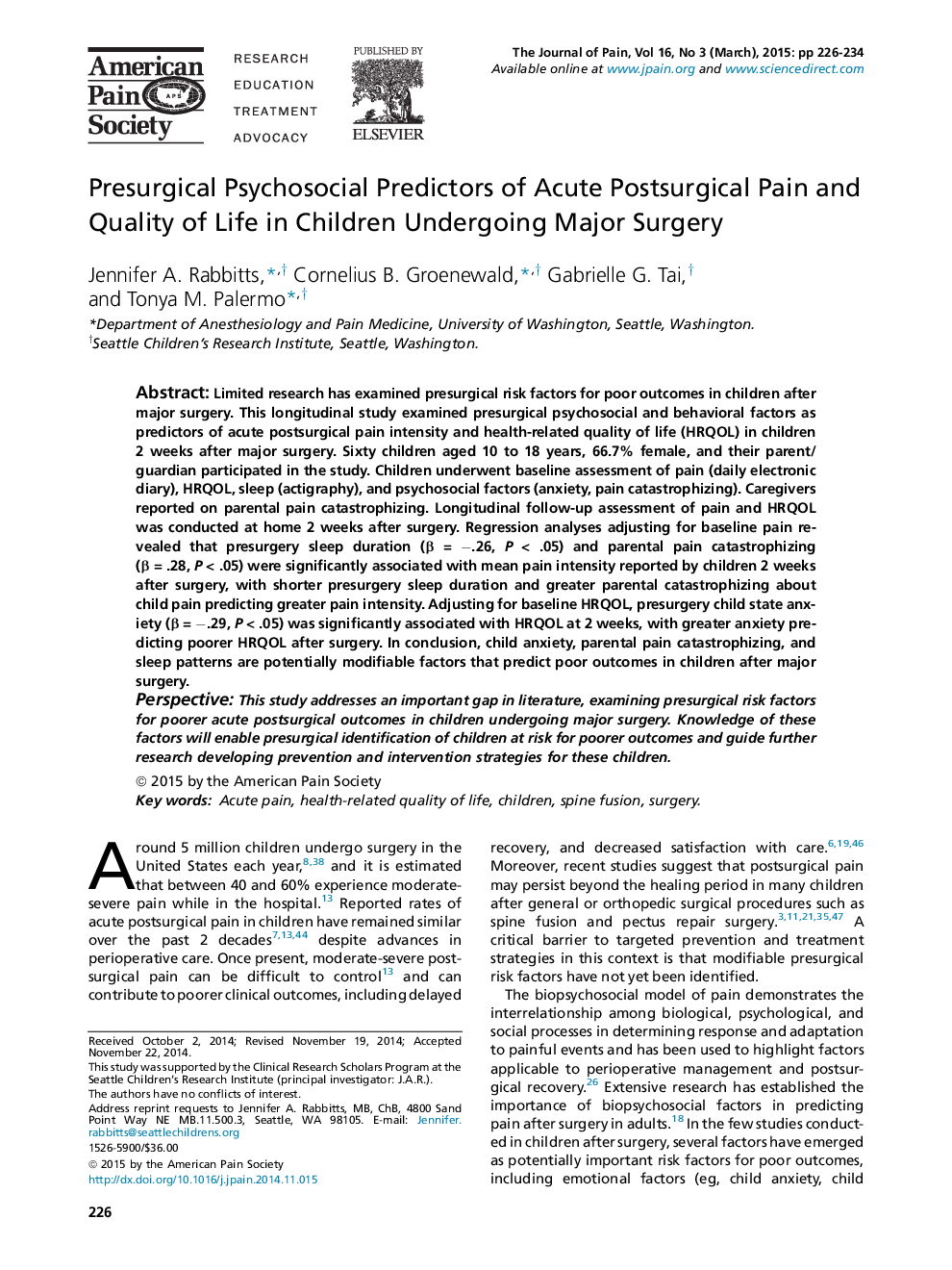| کد مقاله | کد نشریه | سال انتشار | مقاله انگلیسی | نسخه تمام متن |
|---|---|---|---|---|
| 2728580 | 1566736 | 2015 | 9 صفحه PDF | دانلود رایگان |
• The majority of children experienced moderate-severe pain at 2 weeks after surgery.
• At 2 weeks postsurgery, children reported impairments in health-related quality of life.
• Baseline parental pain catastrophizing predicted greater pain intensity postsurgery.
• Less sleep duration prior to surgery predicted greater pain intensity at follow-up.
• Higher child state anxiety predicted greater impairments in health-related quality of life at 2 weeks.
Limited research has examined presurgical risk factors for poor outcomes in children after major surgery. This longitudinal study examined presurgical psychosocial and behavioral factors as predictors of acute postsurgical pain intensity and health-related quality of life (HRQOL) in children 2 weeks after major surgery. Sixty children aged 10 to 18 years, 66.7% female, and their parent/guardian participated in the study. Children underwent baseline assessment of pain (daily electronic diary), HRQOL, sleep (actigraphy), and psychosocial factors (anxiety, pain catastrophizing). Caregivers reported on parental pain catastrophizing. Longitudinal follow-up assessment of pain and HRQOL was conducted at home 2 weeks after surgery. Regression analyses adjusting for baseline pain revealed that presurgery sleep duration (β = −.26, P < .05) and parental pain catastrophizing (β = .28, P < .05) were significantly associated with mean pain intensity reported by children 2 weeks after surgery, with shorter presurgery sleep duration and greater parental catastrophizing about child pain predicting greater pain intensity. Adjusting for baseline HRQOL, presurgery child state anxiety (β = −.29, P < .05) was significantly associated with HRQOL at 2 weeks, with greater anxiety predicting poorer HRQOL after surgery. In conclusion, child anxiety, parental pain catastrophizing, and sleep patterns are potentially modifiable factors that predict poor outcomes in children after major surgery.PerspectiveThis study addresses an important gap in literature, examining presurgical risk factors for poorer acute postsurgical outcomes in children undergoing major surgery. Knowledge of these factors will enable presurgical identification of children at risk for poorer outcomes and guide further research developing prevention and intervention strategies for these children.
Journal: The Journal of Pain - Volume 16, Issue 3, March 2015, Pages 226–234
